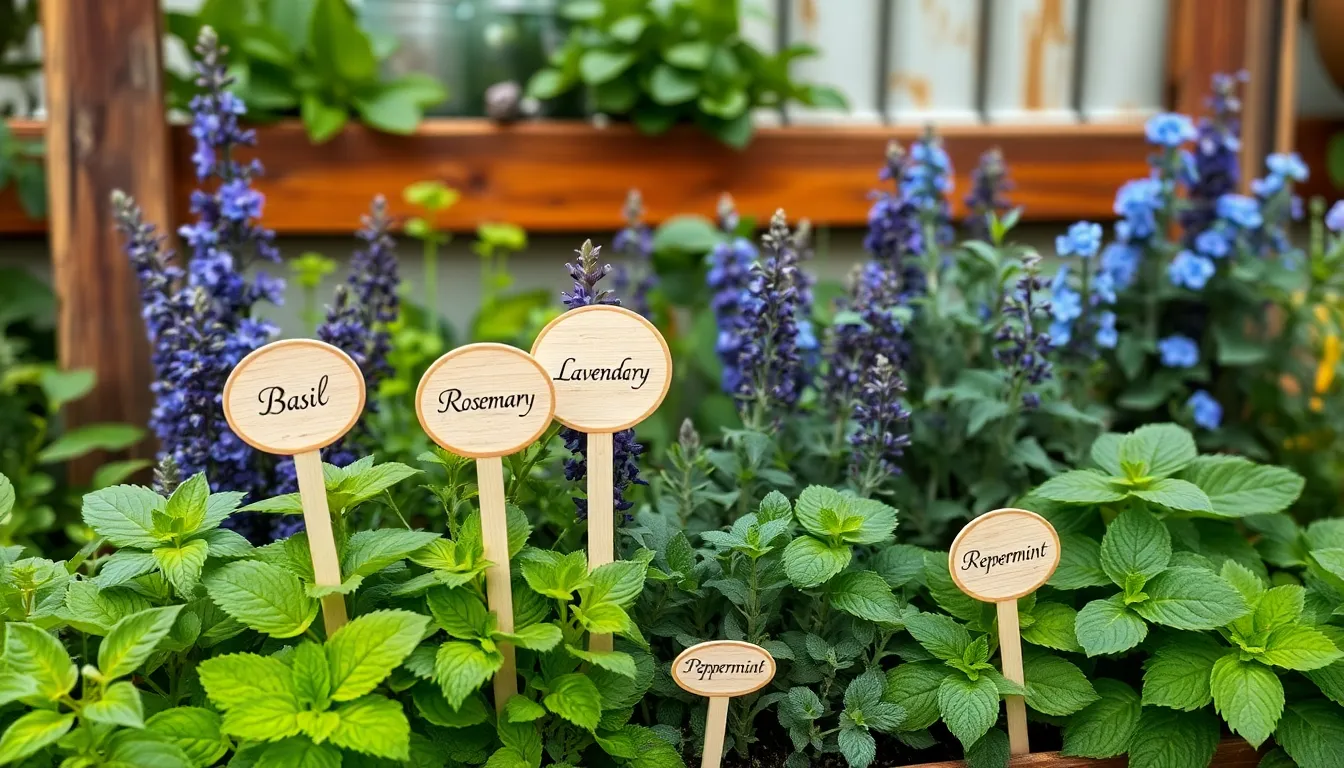Imagine stepping into your garden, the air perfumed with the sweet scent of blossoms, and your plants thriving without a nibble from pesky intruders. Whether you’re just getting your hands dirty for the first time or have been sowing seeds for years, finding natural ways to protect your green sanctuary is a skill every gardener can cultivate. “Tips For Repel Garden Pests Naturally” is your treasure trove of wisdom, designed to help you grow a flourishing oasis while keeping the insects at bay.
In this practical guide, you’ll discover simple yet effective strategies to harmonize with nature, ensuring your garden remains a vibrant, pest-free haven. Embrace the confidence that comes from knowing your plants are shielded by eco-friendly methods, and revel in the rewards of a thriving garden that reflects your dedication and love. Dive in, and let the joy of successful gardening inspire you to nurture your space with renewed enthusiasm and expertise.
Plant Pest-Repellent Herbs Nearby
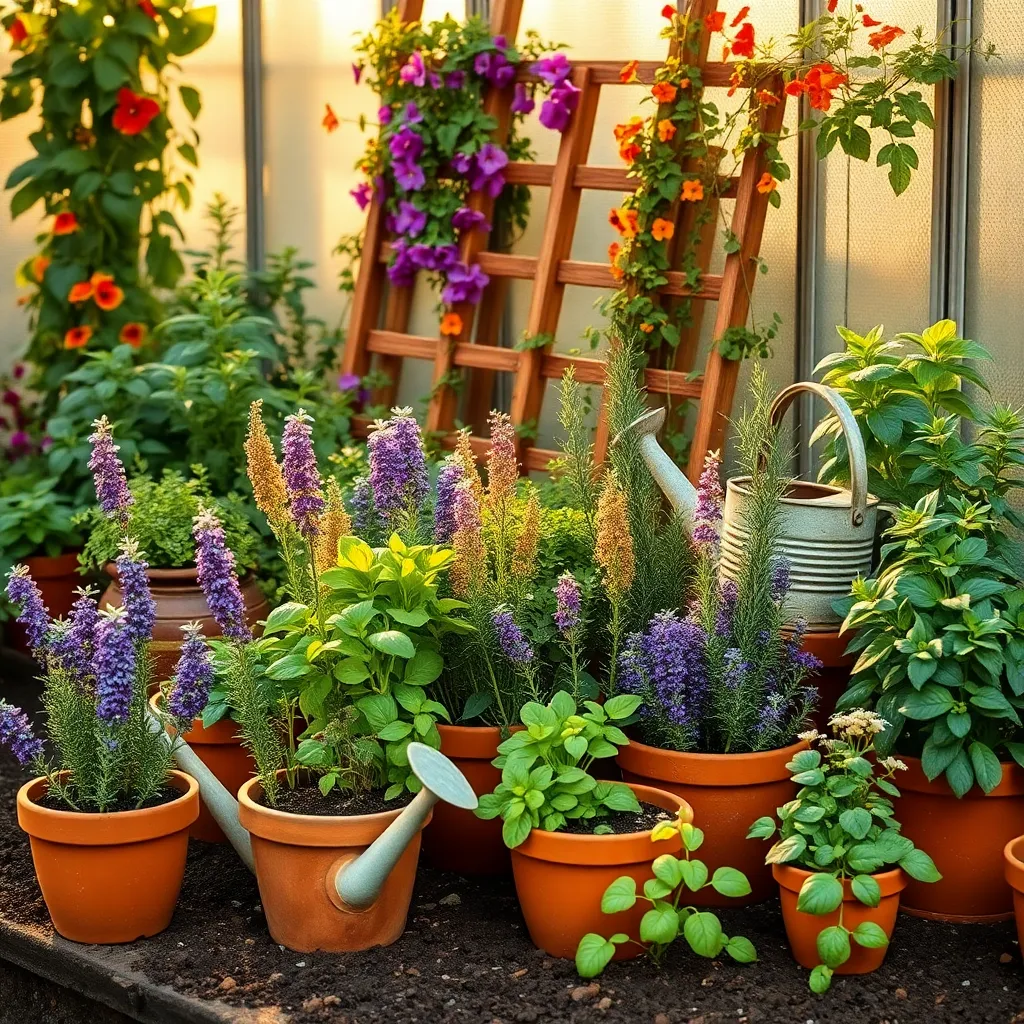
Companion planting with pest-repellent herbs is an excellent strategy to deter unwanted insects from your garden. Herbs like basil and mint are not only easy to grow but also release aromatic oils that naturally repel pests like aphids and beetles.
Consider planting chives and garlic near your tomatoes and roses to ward off spider mites and Japanese beetles. These herbs prefer well-drained soil and full sun, so ensure they have at least six hours of sunlight each day for optimal growth.
Lavender is another fantastic choice, known for its ability to repel moths, fleas, and flies while adding a pleasant fragrance to your garden. To thrive, lavender requires a sunny spot with slightly alkaline, sandy soil, and it’s crucial to avoid overwatering to prevent root rot.
For a more advanced technique, integrate rosemary and sage into your vegetable garden to protect against carrot flies and cabbage moths. Both herbs thrive in slightly acidic to neutral soil with good drainage, and they benefit from regular pruning to encourage bushier growth and more robust aromatic oils.
Introduce Beneficial Insects
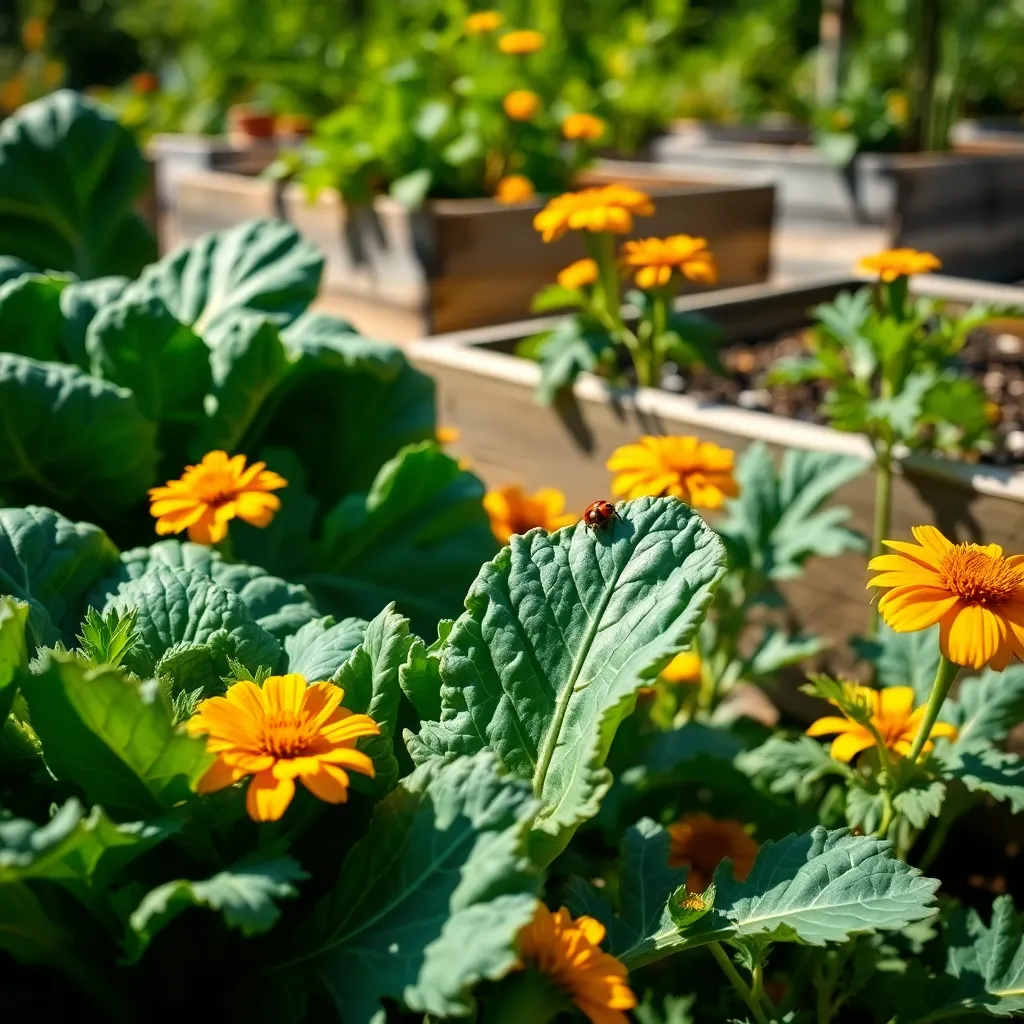
Encouraging beneficial insects in your garden is a natural way to manage pest populations. One effective strategy is to plant flowers such as dill, fennel, and alyssum, which attract beneficial predators like ladybugs and lacewings. These insects feed on common garden pests, including aphids and caterpillars, helping to naturally control their numbers. Ensure these flowers are planted in well-draining soil and receive at least six hours of sunlight daily for optimal growth.
For a more advanced approach, consider introducing beneficial nematodes to your soil. These microscopic worms target soil-dwelling pests such as grubs and root maggots, offering a subterranean solution to pest problems. Apply nematodes in the early morning or evening when temperatures are cooler, and keep the soil moist to enhance their effectiveness. Repeat applications every few months for continuous pest management.
Creating a habitat that supports beneficial insects is crucial for long-term success. Incorporate a variety of plants that provide pollen and nectar throughout the growing season to sustain these helpful allies. Avoid using chemical pesticides, as they can harm both pests and beneficial insects, disrupting the natural balance in your garden. Instead, rely on organic solutions and manual pest control methods for a healthier ecosystem.
Finally, consider installing insect hotels or shelters to encourage beneficial predators to take up residence in your garden. These structures provide safe overwintering spots and nesting sites, increasing the likelihood of these insects staying in your garden year-round. Position these shelters in quiet, undisturbed areas and ensure they are protected from harsh weather conditions. Check periodically to ensure they remain in good condition and are serving their purpose effectively.
Use Neem Oil Spray
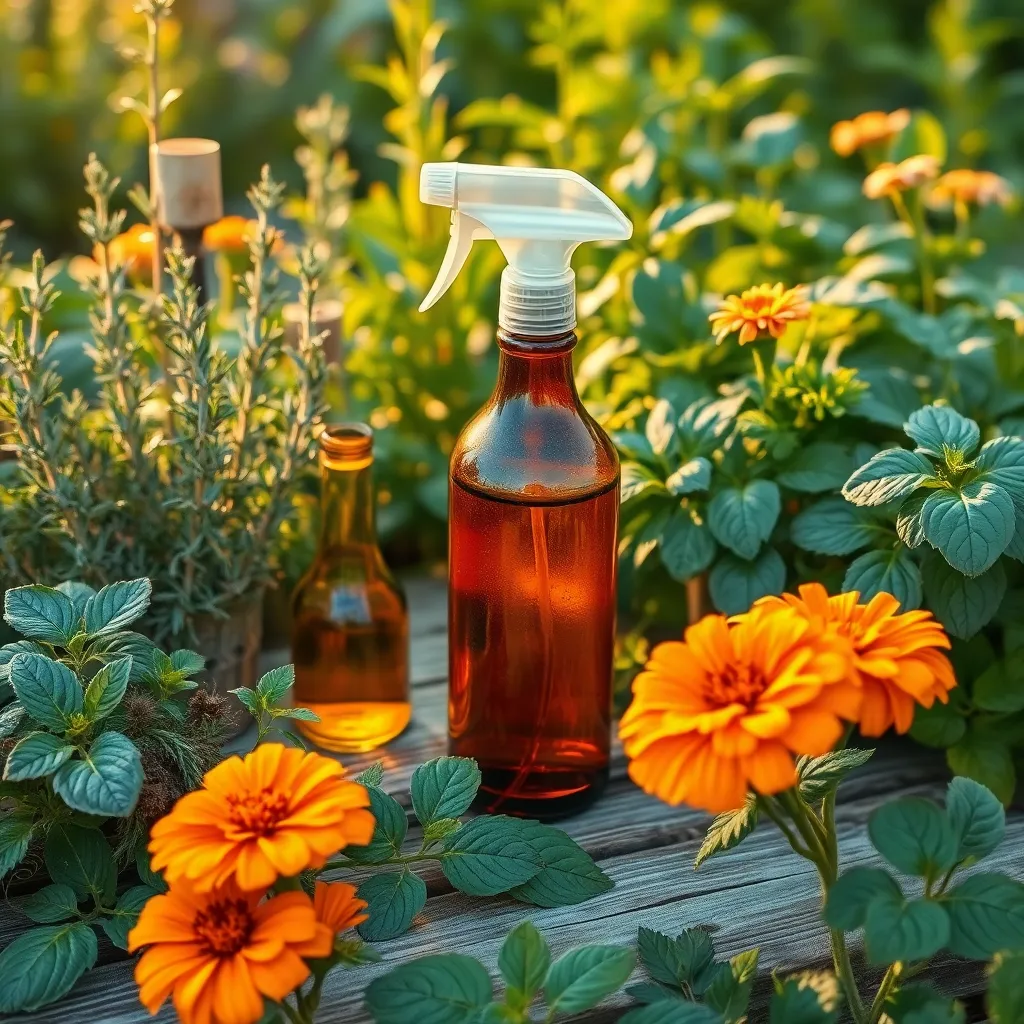
Neem oil spray is a highly effective natural solution for repelling a variety of garden pests. Derived from the seeds of the neem tree, this oil targets insects like aphids, spider mites, and whiteflies without harming beneficial insects when used correctly.
To prepare a neem oil spray, mix two tablespoons of neem oil with one gallon of water and a few drops of mild dish soap. This mixture can be sprayed directly onto the leaves of affected plants, ensuring thorough coverage underneath the leaves where pests often hide.
Consistency is key when using neem oil, so apply the spray every 7 to 14 days for the best results. For gardeners facing a severe infestation, it may be necessary to use the spray more frequently, but always test on a small area first to prevent leaf burn.
Advanced gardeners can enhance the efficacy of neem oil by combining it with other natural pest control methods, such as integrating companion planting techniques. For example, planting garlic or basil nearby can further deter pests, creating a multi-layered defense system for your garden.
Install Homemade Garlic Barriers
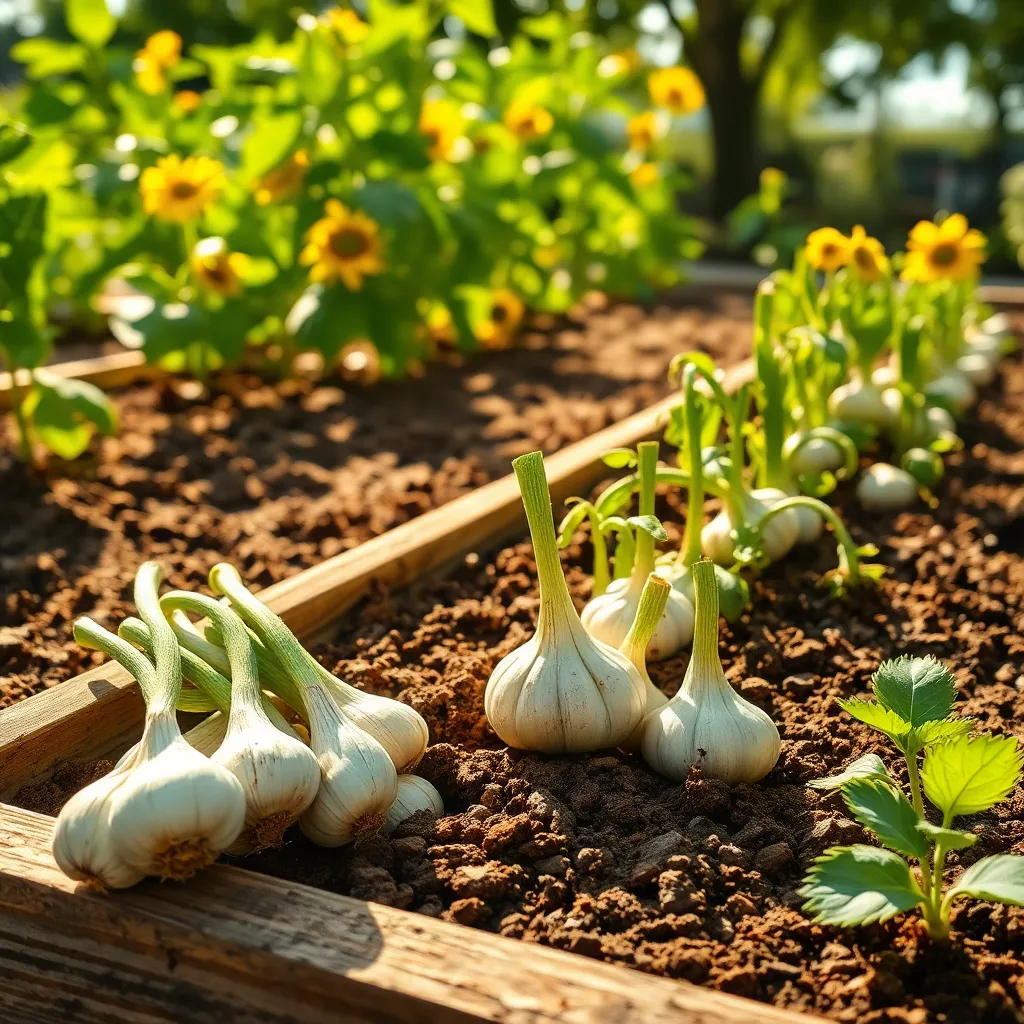
Garlic is a powerful natural pest repellent, making it an excellent choice for creating homemade barriers in your garden. To start, crush several cloves of garlic and soak them in water overnight, allowing the potent compounds to infuse into the liquid.
Once your garlic water is ready, strain the liquid and mix it with a small amount of mild soap to help it adhere to plant surfaces. Spray this mixture onto plant leaves and around the garden’s perimeter to deter pests such as aphids, beetles, and caterpillars.
For maximum effectiveness, apply the garlic spray on a dry day when rain isn’t forecasted to wash it away. Reapply every couple of weeks and after any rainfall to maintain the barrier’s strength and keep pests at bay.
In addition to spraying, consider planting garlic bulbs directly into the soil around your garden beds. Not only will they act as a continuous deterrent, but you’ll also have fresh garlic to harvest later in the season!
Create a Coffee Ground Barrier
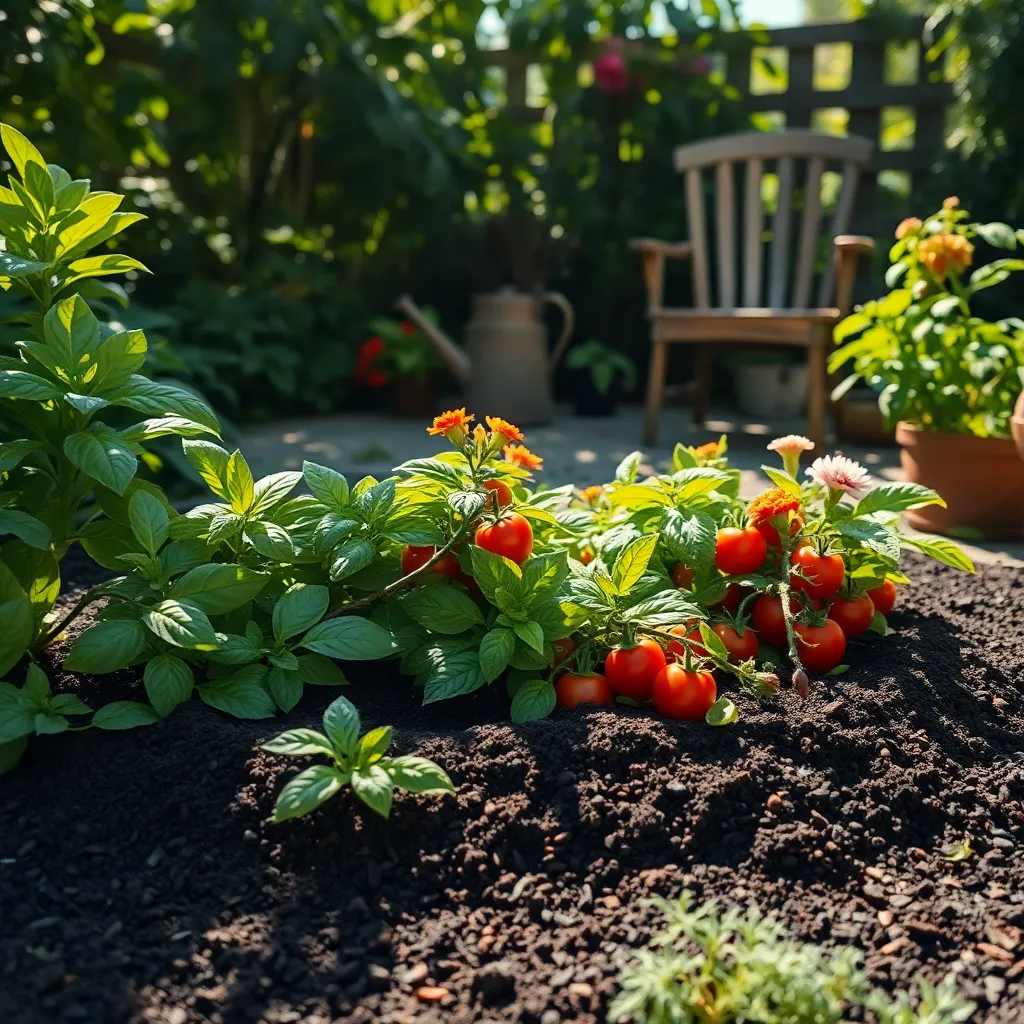
Coffee grounds can serve as an effective natural barrier to deter pests in your garden. By creating a barrier of coffee grounds around your plants, you can help keep slugs, snails, and ants at bay, as they tend to dislike the texture and smell of the grounds.
To create this barrier, simply sprinkle a layer of used coffee grounds around the base of your plants. Make sure the layer is thick enough to deter pests but not so thick that it inhibits water drainage or plant growth; about half an inch should suffice.
Fresh coffee grounds may retain more caffeine, which some plants might be sensitive to, so it’s best to use grounds that have already been brewed. This also ensures that the grounds are less acidic, making them safer for a broader range of plants.
In addition to pest deterrence, coffee grounds can enrich the soil with organic matter and nutrients like nitrogen. For those looking to maximize benefits, you can mix the used grounds into your compost pile or directly into your garden soil to improve its structure.
Conclusion: Growing Success with These Plants
In nurturing a thriving partnership, much like a flourishing garden, cultivating a harmonious and healthy environment is key. We explored five essential relationship concepts: the importance of open communication, the power of empathy, the value of shared goals, the necessity of trust, and the art of compromise. These elements serve as natural repellents against the common “pests” that threaten relationship vibrancy, such as misunderstandings and resentment.
To put these insights into immediate action, start by initiating a heartfelt conversation with your partner today, focusing on active listening and understanding. This small step strengthens your relational foundation and sets the stage for deeper connection and growth.
As relationships are ever-evolving, save this article to revisit these principles whenever you need a refresher or a boost in your relational journey. Simply bookmark it for easy access and ongoing inspiration.
Looking ahead, by consistently applying these strategies, you empower your relationship to blossom into a resilient, joyful, and enduring union. Embrace this opportunity to nurture your bond, knowing that each effort plants seeds of lasting love and fulfillment.

